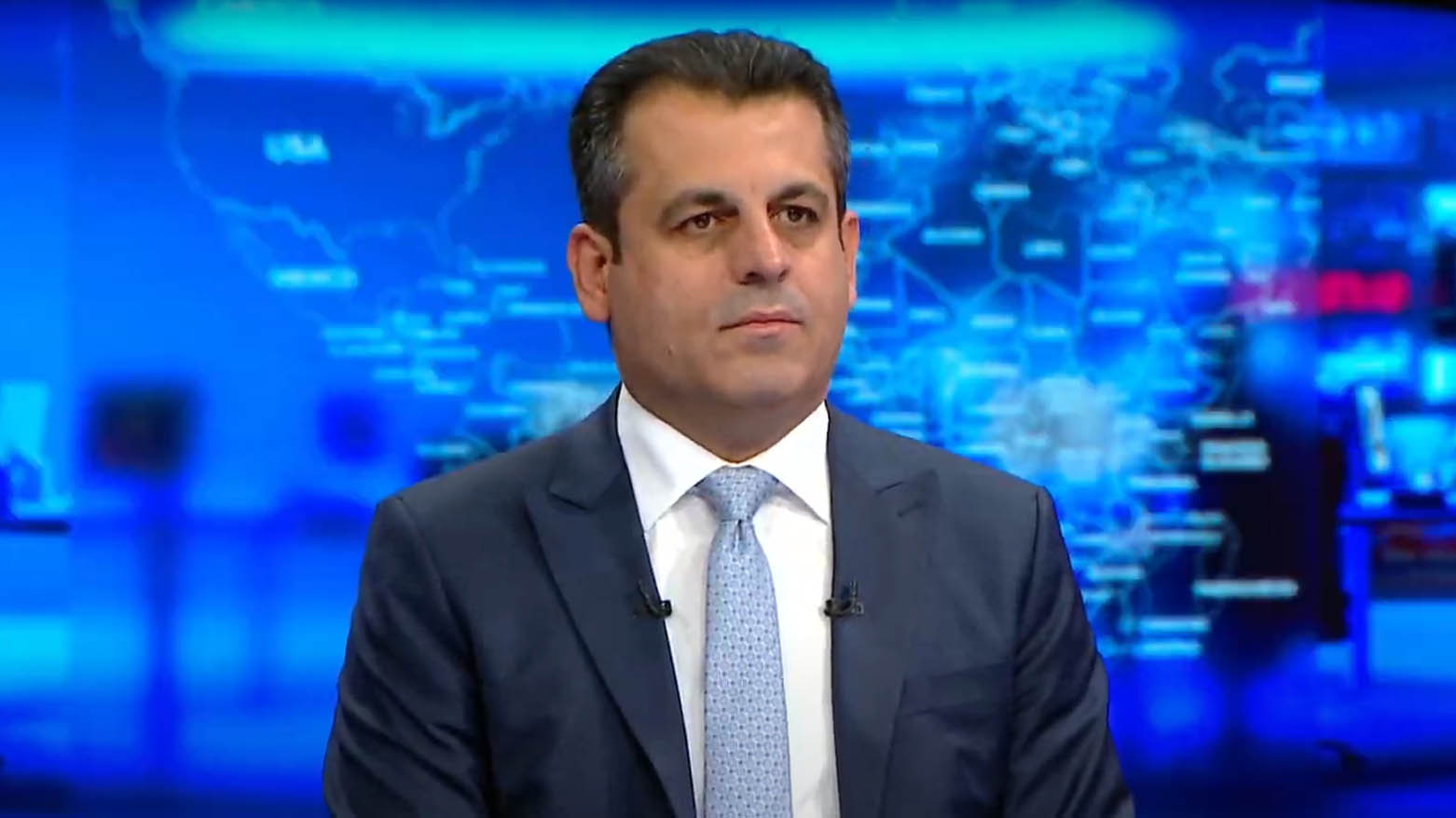KRG Health Minister Decries Systematic Neglect by Baghdad in Health Sector Provision
KRG Health Minister Saman Barzanji accuses Baghdad of systematically marginalizing Kurdistan’s healthcare sector—denying supplies, excluding the Region from federal contracts, and neglecting IDPs, refugees, and cancer care—warning of a deepening health crisis.

By Kamaran Aziz
ERBIL (Kurdistan24) – In an exclusive interview with Kurdistan24’s Hakar Niheli on Saturday, Kurdistan Region’s Minister of Health, Dr. Saman Barzanji, delivered a stern critique of the Iraqi Federal Government, accusing it of deliberate and systemic marginalization of the Kurdistan Region in the provision of healthcare resources, infrastructure, and services.
Participating in a Kurdistan24 news bulletin, Minister Barzanji said Baghdad continues to deprive the Kurdistan Region of its rightful share of medical supplies and advanced diagnostic equipment, despite the Region’s constitutional entitlement to such provisions under Iraq's national budget.
“What we actually receive — after countless meetings and visits to Baghdad — is limited to pharmaceutical supplies,” he said, noting that even these meet only 50 to 55 percent of Kurdistan's needs. “Baghdad provides no support for medical equipment, including essential machines such as MRIs, CT scanners, and echocardiograms.”
Dr. Barzanji emphasized that these deficiencies are not accidental but systemic. He explained that although the Kurdistan Region is formally included in Iraq's national budget, federal contracts with international companies routinely exclude the Region. “If Iraq signs a contract to supply 200 MRI machines, the Kurdistan Region should receive its share. Yet in practice, we are not even mentioned in these agreements,” he said.
The Health Minister further criticized Baghdad for neglecting equipment repair and maintenance contracts, forcing the Kurdistan Regional Government (KRG) to bear billions of dinars in additional costs.
“This is not just financial marginalization. It's political manipulation of a humanitarian sector,” Barzanji said. “Healthcare should not be weaponized against any citizen."
One of the most striking examples of neglect, according to Barzanji, is the near-total absence of support for cancer treatment. “Baghdad covers only 15 to 20 percent of the cancer treatment costs,” he said, adding that the KRG is left to cover the remaining 80 percent. Meanwhile, about 40 percent of the cancer patients treated in the Region are from central and southern Iraq.
The Minister also spotlighted the dire situation of internally displaced persons (IDPs) and refugees. “We host 21 IDP camps that require medical staff, equipment, and supplies,” he said. “The health needs of these vulnerable populations are immense, yet Baghdad provides no meaningful support.”
Another grievance raised was the continued neglect of Halabja Province. Despite its recognition as a province, Halabja receives no direct allocation from Baghdad, unlike Erbil, Sulaimani, and Duhok. “Even the three provinces that do receive medical supplies are forced to redistribute them across the entire Region, which remains wholly inadequate,” Barzanji noted.
He drew a comparison with Baghdad, which has three separate and well-equipped health directorates for its capital city alone—Madinat al-Tibb, Karkh, and Rusafa.
The Minister further criticized the central government for failing to deliver on post-ISIS reconstruction promises. “Health facilities destroyed in conflict zones under or near KRG control have not been rebuilt,” he said. “During the war, we received no ambulances or emergency support from Baghdad. Twenty-one ambulances were damaged while transporting wounded Peshmerga fighters from Mosul to Erbil."
Despite these obstacles, the KRG continued its humanitarian mission, including providing vaccinations to displaced children from Mosul.
Dr. Barzanji also disclosed that he had personally submitted a draft law to Prime Minister Mohammed Shia al-Sudani last year aimed at addressing these systemic issues. “The law includes provisions for IDPs and refugees, healthcare financing, and a framework for equitable service delivery,” he said. “It was supposed to lead to the formation of a high-level committee and amendments to this year’s budget. None of these promises were kept.”
In conclusion, Barzanji warned that unless Baghdad fulfills its constitutional obligations to the people of the Kurdistan Region, the healthcare crisis will deepen, endangering not only the Region's citizens but also Iraqis from the central and southern provinces who rely on Kurdistan's healthcare services.
"Health is a national responsibility, not a political bargaining chip," he affirmed.